The business of justice featuring Kenneth Frazier and Charles Blow
Transcript
[The business of justice. Kenneth Frazier, chairman and CEO, Merck and Company. An African American man wearing a gray suit with light blue pin-stripes, with a blue tie. Charles Blow, journalist, New York Times. An African American man wearing a gray suit and faded-blue tie.]
ANNOUNCER: Please welcome Kenneth Frazier and Charles Blow.
[applause]
CHARLES BLOW: So, let’s start by talking about black maternal mortality, which is something you care about.
KENNETH FRAZIER: Yep.
CHARLES BLOW: Black women—three or four times more likely to die during pregnancy
than—or childbirth—than white women or Hispanic women.
KENNETH FRAZIER: In New York City.
CHARLES BLOW: Yes. What are you doing at Merck to address that?
KENNETH FRAZIER: One of the greatest forms of injustice in our society are the health disparities. Now, in a company like ours, we celebrate all the new ways of treating and curing, and hopefully preventing, disease that come through sequencing the human genome. The reality of the world, though, is that your zip code is more determinative of your health outcomes and your life expectancy than your genetic code. So, at Merck, what we’ve decided to do is, we think it’s a scandal that that many women die in childbirth in New York City. Just to put it in a context, the maternal mortality of black women in New York City is worse than women in Mexico, and half the women in Mexico live below the poverty line. And so we have to say, what is it that we can do as a company that has a lot of brilliant scientists focused on the practice of medicine to start to treat this differently. And there’s a number of issues that drive this. There’s the physiological stress of the lived experience of being a black woman in America that puts them in a situation. There are issues around diet and nutrition. But also, there are issues around how those women are heard when they go into the medical system, right?
CHARLES BLOW: Right.
KENNETH FRAZIER: The best example of that—and you may have read about this—was Serena Williams. And she has all the money in the world, but she was—she reports that, “I have this history.” Right? “And I’m worried about a pulmonary embolism.” And she—nobody listens to her. So, our job is to see what we can do. We put $500 million into a fund to see what we could do to prevent women from dying unnecessarily in childbirth. No woman should die giving life. Thank you.
[applause]
CHARLES BLOW: But this idea of being heard, I mean, it’s just very complicated. So how do we—how do we dig into that and bring equality to that space? Because a lot of it is operating on a—as a subconscious bias, not as an active, uh, hatred or animus to the black people.
KENNETH FRAZIER: Sure, sure. And that’s one of the challenges in our society is that we don’t see people who are expressing—well, we see too many of them nowadays—we used to not see people expressing animus, but there is this question of whether people can be heard. So it’s really a question of training and sensitivity and awareness. And that’s what we’re trying to do—is, we’re trying to help physicians understand certain things that are endemic to these African American women. So, for example, the rate of high blood pressure is much different in African American women. So whether they show up raising that as a risk factor or not, you ought to understand that, and you really ought to, you know, be much more patient in listening to the story about what’s happening to a person. I just have to say, my wife actually had a brain hemorrhage when my first child was born.
CHARLES BLOW: Wow.
KENNETH FRAZIER: Now, if you’re gonna have a brain hemorrhage, you should probably have it in the hospital at University of Pennsylvania—one of the better places in the world to do it. But the fact of the matter—she kept saying, “I’m having these pounding headaches.” And they kept saying, “No, you’re having postpartum stress.” If it wasn’t for her having a female anesthesiologist, who was troubled, calling her husband—a doctor in another hospital—who immediately diagnosed it as a subarachnoid hemorrhage. So, I saw it in my own life. So, this is a question of get—who gets heard?
CHARLES BLOW: Is, is part of the solution encouraging more young African American students to go into the medical field?
KENNETH FRAZIER: Absolutely. So, for that reason and for other reasons, it’s important that we have—in all the professions that are important to our society—law, business, medicine for sure—we treat humanity in all its infinite variety. If we don’t have people who actually represent the patients, I don’t know how we can actually have a just and effective medical system.
CHARLES BLOW: And is there any concern about, uh, the siloing of, of medicine—meaning, that you are more likely to get a good, uh, outcome if you visit a doctor who is sensitive to you because they look like you, they have the same life experiences as you? Is there—do you worry at all that, that becomes the norm, that I am now—
KENNETH FRAZIER: Yeah, yeah.
CHARLES BLOW: doctor-surfing to find a black doctor because I’m black, or I’m doctor-surfing to find a Hispanic doctor because I’m Hispanic? Or do you think that just by having more people in the space, that it equalizes it and brings everybody up to a level of compassion?
KENNETH FRAZIER: I think it’s a question of having more people in their formative years and in the educational system. I don’t want to live in a world where I think that I need to have a black doctor—right?
CHARLES BLOW: Right.
KENNETH FRAZIER: I think it’s a question of making sure that physicians, no matter what their color, are listening to the conversations that their patients are having. These are issues for women, by the way, irrespective of color. It’s the same kind of issue, and we’ve just got to train physicians to be much more open and much more willing to listen to what’s happening in front of them.
[applause]
[New gospel of wealth. What does #GenerosityToJustice look like to you? Ford Foundation dot org forward slash new gospel.]
Accessibility Statement
- All videos produced by the Ford Foundation since 2020 include captions and downloadable transcripts. For videos where visuals require additional understanding, we offer audio-described versions.
- We are continuing to make videos produced prior to 2020 accessible.
- Videos from third-party sources (those not produced by the Ford Foundation) may not have captions, accessible transcripts, or audio descriptions.
- To improve accessibility beyond our site, we’ve created a free video accessibility WordPress plug-in.
Kenneth Frazier, chairman and CEO of Merck & Co. and one of three Black CEOs in the Fortune 500, talks with Charles Blow of the New York Times about how we can all champion the cause of justice.
“To solve big problems, you need to think deeply, dig for root causes, and be willing to upset the status quo.”
– Kenneth Frazier
Learn more about New Gospel of Wealth
Other videos in this series
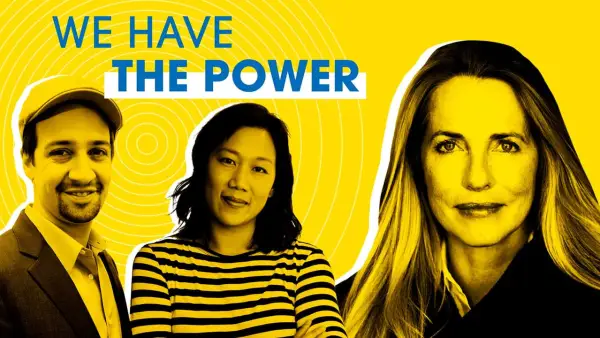
Let’s rethink giving
How can we reimagine philanthropy so that we create a future where there is justice and dignity for all? What are the root causes of the issues and how do we encourage the participation of many and not just a few?
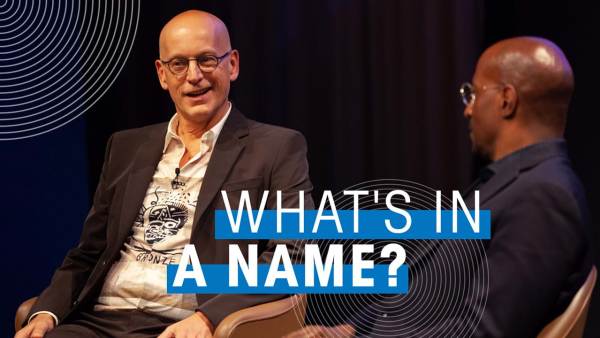
The power of a name featuring Jon Stryker and Van Jones
As a philanthropist, Jon Stryker, president of the Arcus Foundation, believes the act of naming gives power and influence to the work that is supported through his gifts. His philanthropy supports those on the frontlines of justice, providing resources and power to those who need it most.
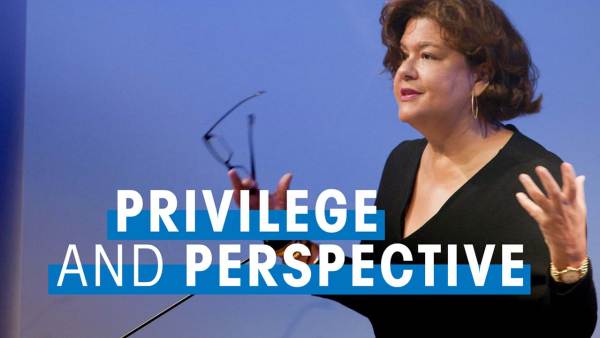
The privilege of perspective featuring Elizabeth Alexander
Elizabeth Alexander, president of the Andrew W. Mellon Foundation, on art, activism, and acknowledging adversity.
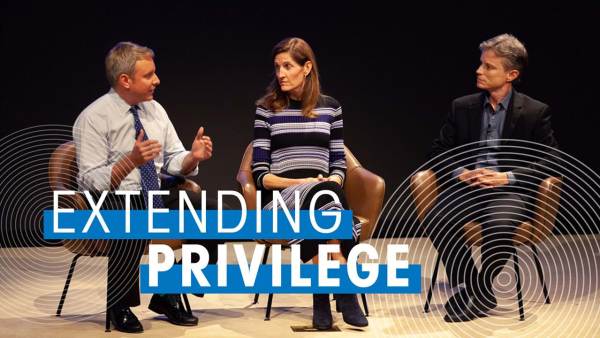
Extending privilege featuring Valerie Rockefeller and Henry Ford III
Henry Ford III, trustee of the Ford Foundation, and Valerie Rockefeller, chair of the Rockefeller Brothers Fund, discuss transforming philanthropy for the 21st century. The families have seen the value of impact investing and believe in partnerships to increase the difference that can be made.
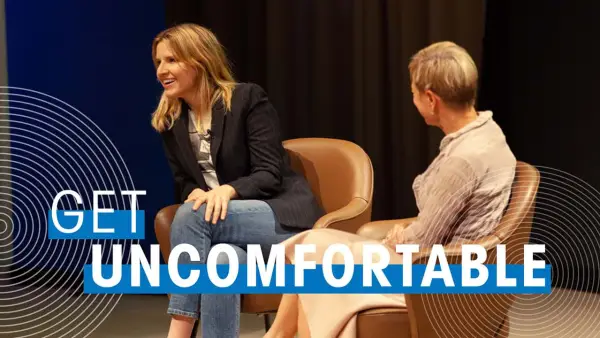
Getting proximate featuring Tara Westover and Hilary Pennington
Tara Westover, author of “Educated,” sees a disconnect between the rural and urban parts of the United States. She believes philanthropists need to be more proximate to the issues they care about, and that spending time with people who aren’t like you is key to disrupting inequality.
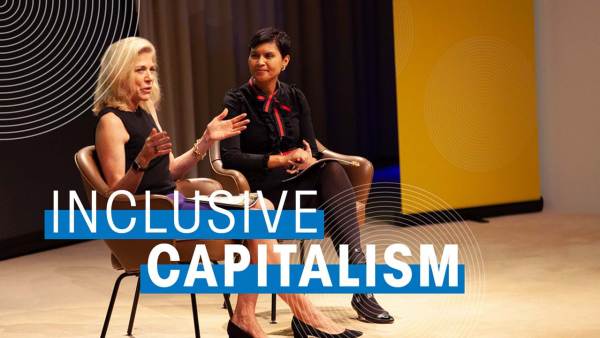
Can capitalism ever really be inclusive? featuring Lynn Forester de Rothschild and Stephanie Mehta
The top 1 percent of the United States controls 42 percent of the national wealth. Lynn Forester de Rothschild, founder of the Center for Inclusive Capitalism, explains that reimagining the economy and making it a sustainable, inclusive system that leads to strong economic growth requires reform.
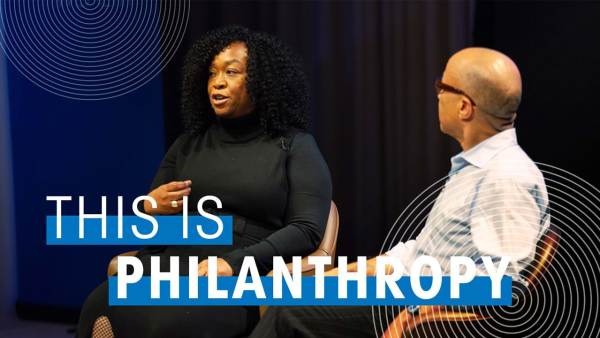
This is what a philanthropist looks like featuring Shonda Rhimes and Darren Walker
Writer and producer Shonda Rhimes has seen the power storytelling has to make change through her work, which centers marginalized people and issues. Rhimes believes philanthropy sets an example others can follow, and says supporting organizations that are already on the ground doing the work is key.
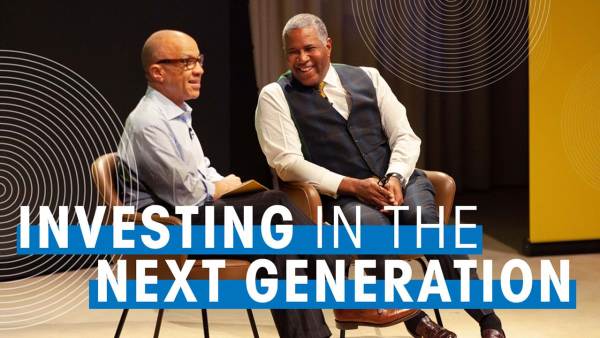
Catalyzing the potential of our time featuring Robert Smith and Darren Walker
Through philanthropy, Robert Smith, CEO of Vista Equity Partners, has alleviated the burden of student debt for a graduating class. He says private philanthropy can help address public policy challenges, such as student loan debt, and is a disruptive opportunity that liberates people to contribute to society in positive ways.
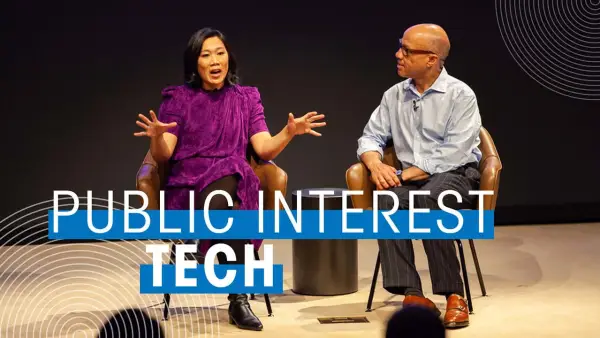
Tech funders changing philanthropy featuring Priscilla Chan & Darren Walker
The top 1 percent of the United States controls 42 percent of the national wealth. Lynn Forester de Rothschild, founder of the Center for Inclusive Capitalism, explains that reimagining the economy and making it a sustainable, inclusive system that leads to strong economic growth requires reform.
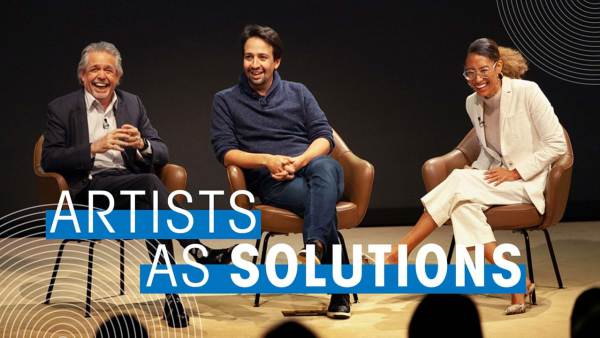
Why artists shouldn’t stay in their lane featuring Lin-Manuel Miranda, Luis Miranda Jr. and Elaine Welteroth
Composer and actor Lin-Manuel Miranda believes all art is political. He and his father, Luis A. Miranda Jr. of the MirRam Group, see the value philanthropy has to empower communities that may have been neglected, and allow them to share their stories through the arts, like Puerto Rico did after Hurricane Maria.
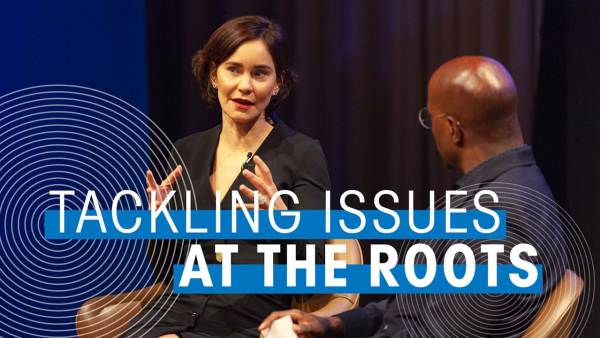
Good philanthropy needs government featuring Laura Arnold and Van Jones
Laura Arnold, co-chair of Arnold Ventures, believes policy change is the lever that will lead to sustainable change. She says we need to attack the systems that are creating the injustices we see, like criminal justice. Philanthropy can create better alternatives that governments can adopt.
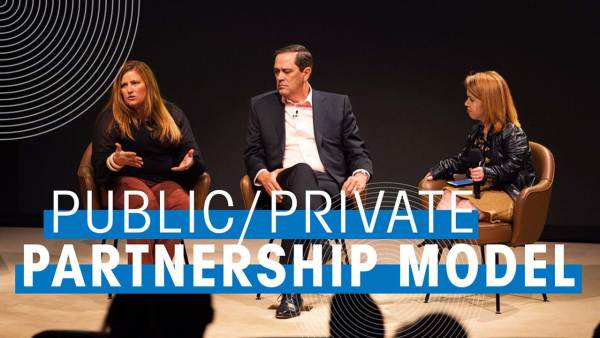
Public-private partnership: A new model for lasting impact featuring Jennifer Loving and Chuck Robbins
Jennifer Loving, CEO of Destination: Home, says a public-private partnership, like the one between her nonprofit and Cisco, headed by Chuck Robbins, can help create a model for the future of philanthropy, and tools like social bonds can help address some of the biggest crises of our time.
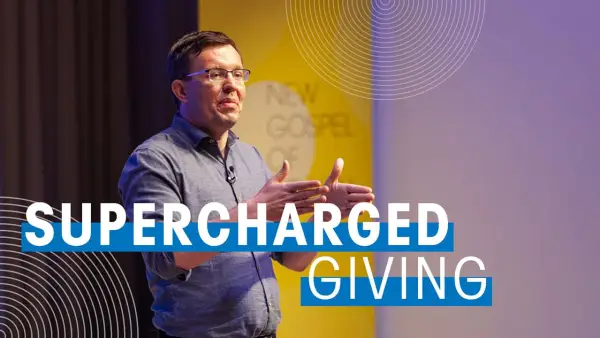
The new power of philanthropy featuring Henry Timms
CEO of Lincoln Center Henry Timms asks how philanthropy can supercharge civic engagement. Timms, who started Giving Tuesday, says trust-based philanthropy needs to shift from generosity to justice, driving more participation from more people, and encouraging meaningful ways to participate and collaborate.
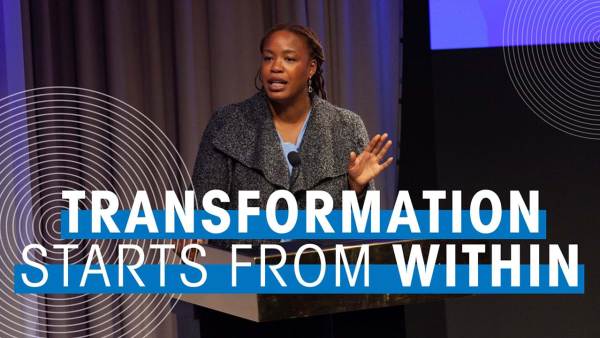
Transforming organizations from the inside featuring Heather McGhee
Heather McGhee, distinguished senior fellow at Demos, shares her experience of working to make the Demos think tank more diverse and led by people of color. Institutional racism, however slight, drives inequality, she says, so transformation needs to be a must-have and not a nice-to-have.
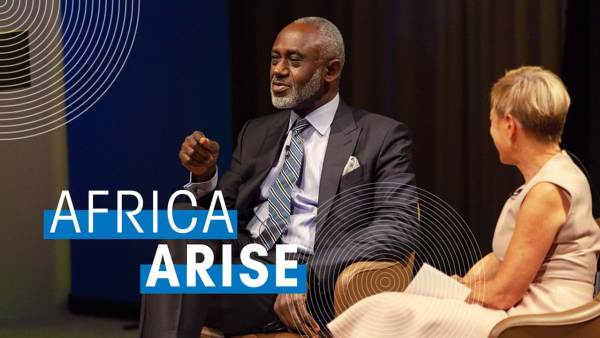
Africa, your time is now featuring Gbenga Oyebode and Hilary Pennington
Ford Foundation trustee Gbenga Oyebode has seen the value of impact investing on the African continent. He believes philanthropy should not just be giving, but investing with a social impact and an economic return. Giving is inherently part of African culture, but needs to be more strategic and collaborative.
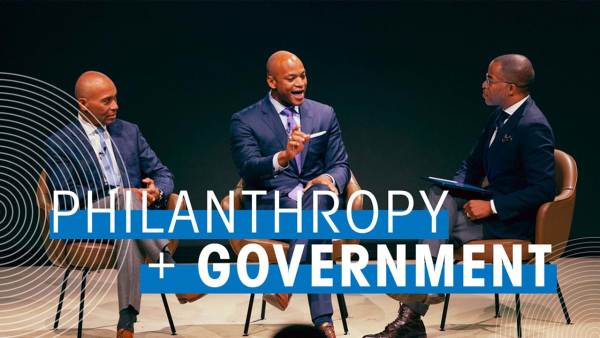
Why good government needs philanthropy featuring Deval Patrick and Wes Moore with Jonathan Capehart
Wes Moore, CEO of Robin Hood, and Deval Patrick, managing director of Bain Capital, see philanthropy working hand-in-hand with government in the fight for equality. Philanthropy can often provide the initial capital needed while government can take over and scale the solution.
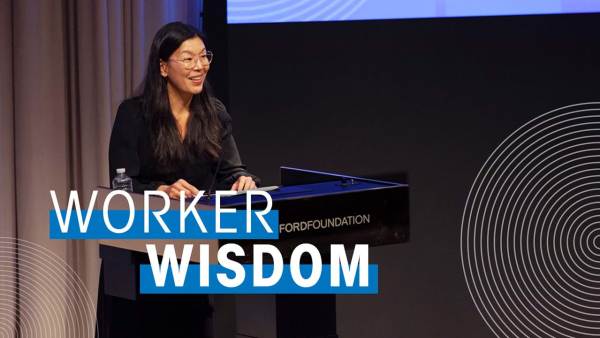
Bringing hidden labor to light featuring Ai-Jen Poo
Ai-jen Poo, executive director of the National Domestic Workers Alliance, says the sector of caregivers and domestic workers continues to grow. Building a future of work that works for all is centered on justice-based philanthropy and not a generosity model.
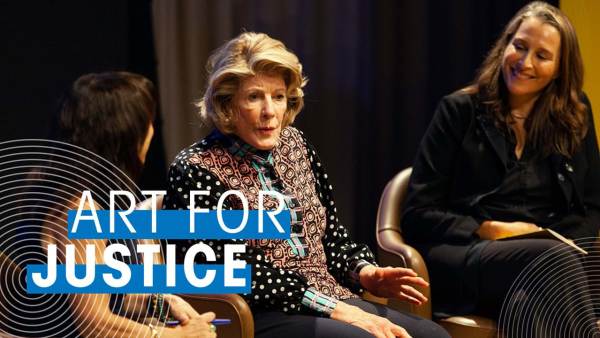
Art for Justice featuring Agnes Gund and Catherine Gund with Maria Hinojosa
The Art for Justice fund was created to help end mass incarceration. Founder Agnes Gund says philanthropy is about addressing issues like this. Catherine Gund believes art has an important part to play in the fight for racial justice and can help change the policies that led to mass incarceration.
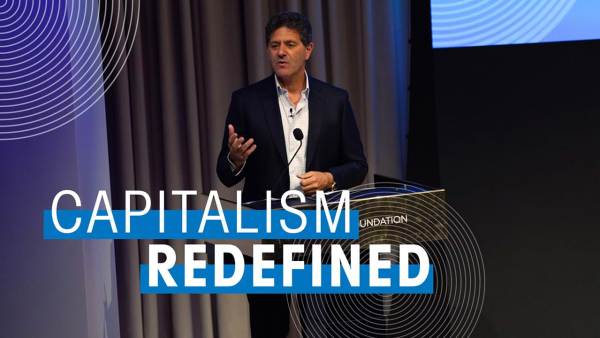
Capitalism redefined featuring Nick Hanauer
Entrepreneur Nick Hanauer asks us to reimagine the economy. He believes we need to change our beliefs about the economy to create a more just, more equitable society for all. By choosing better economic beliefs, we can change society for good.
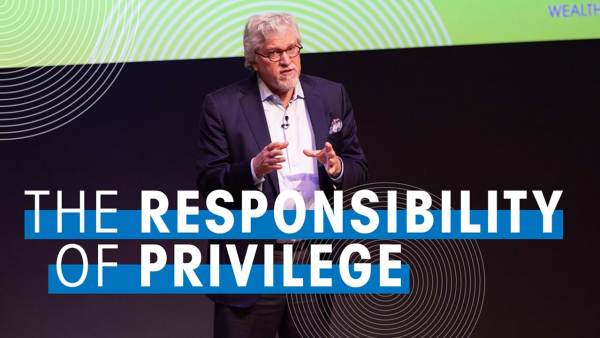
On using power and privilege for change featuring Jeff Raikes
Jeff Raikes, co-founder of the Raikes Foundation, says dismantling racism requires philanthropy to ditch its colorblind approach. People in power need to acknowledge that privilege is invisible to those who possess it. Privilege and power need to be transformed into a force for changing our society for the better.